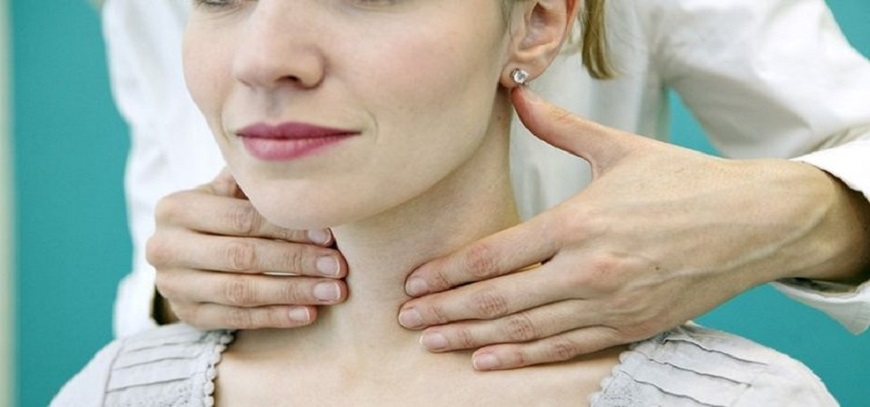Hashimoto's Thyroiditis And Nutrition
Working Hours
- Monday-Saturday 09:00 - 20:00
Contact Information
-
Phone: 0(232)463 20 00
0(530)690 66 44 - info@serenapoliklinigi.com
Contact Form

Hashimoto’s thyroiditis is a thyroid disease arising out of the thyroid gland recognizing the autoimmune, in other words, the person’s own protection mechanism, and the thyroid tissue as a foreign substance and producing antibody against it. The body produces a high amount of anti-TPO antibody and anti-thyroglobulin antibody to destroy the thyroid gland. These antibodies connect with the thyroid gland and damage the thyroid cells. Meanwhile, many inflammatory cells accumulate in the thyroid gland. The thyroid cells are damaged as a result of the inflammation and the thyroid hormone starts decreasing. Hormone deficiency arises with the thyroid gland becoming smaller. This situation may cause hormone excess, namely hyperthyroid and thyroid hormone deficiency within years. Hashimoto’s disease has taken this name since it was defined by the Japanese scientist Akira Hashimoto in 1912.
Symptoms
There is no clinical finding that shows Hashimoto’s. the thyroid hormone excess that Hashimoto’s disease causes and more frequently thyroid hormone deficiency bring people to the doctor. The symptoms and findings in Hashimoto’s are not special for this disease. The most distinct symptoms are as follows;
Frequent weight gaining,
Skin drying,
Fast chilling,
Exhaustion,
Cramps,
Change in the voice,
Constipation.
HASHIMOTO’S TESTS
The thyroid hormones (FT3, FT4, TSH) in most of the Hashimoto’s patients are at the normal level. About 10% of the patients experience hypothyroid. (FT3, FT4 high, TSH low). Most of the patients have Anti TPO, Anti TG antibodies for a lifetime. These antibodies indicate that hypothyroid will develop in the following periods although it’s not seen at the early stages. Hashimoto’s disease can be diagnosed through ultrasonography with the thyroid and antibody values in the blood. A needle biopsy under ultrasonography may be necessary to do in order to understand whether the detected nodules benign.
THE DIFFERENCES AND RELATION BETWEEN THE GOITER, THYROID AND HASHIMOTO’S DISEASE
The thyroid is an endocrine organ in front of the bronchial tube and esophagus, consisting of two parts connected to each other that produce the thyroid hormone. It is responsible for the metabolic activities, the activities related to the brain and nervous system, growing and development, development and persistence of reproduction functions in our body. Goiter is enlargement of the thyroid gland for whatever the reason might be. Hashimoto’s disease, on the other hand, is an autoimmune disease where the thyroid gland is recognized as a foreign body by the defense system in our body and the thyroid gland loses its production ability in the medium and long term and therefore resulting in thyroid hormone deficiency with 85-90 percentage. There are some periods when thyroid hormone production increases from time to time in Hashimoto’s disease.
TREATMENT OF HASHIMOTO’S DISEASE
When only hypothyroid (underworking thyroid gland) is developed in the Hashimoto’s thyroid, treatment is suggested. The TSH level rises in a person with hypothyroid and the sT3 and sT4 hormones drop in the following stages. In the treatment, a synthetic T4 hormone called levothyroxine is used. The medication’s dosage arrangement must be made under the control of the doctor periodically. When the medicine is used in a suitable dosage, almost no side effect is experienced. Irregular usage of the medicine impairs the quality of life or limits the remedial effect of the medicine. Discontinuing the medication may cause serious consequences that may progress up to coma.
HOW SHOULD BE THE NUTRITION IN HASHIMOTO’S DISEASE?
There isn’t any special nutrition for Hashimoto’s disease. However, sufficient and balanced nutrition is important for Hashimoto’s just as in any disease. Although there are some studies showing that iodine excess triggers these diseases, the accuracy of this have not been able to be proven. There are some publications regarding the disease healing with selenium intake. If the selenium level is low in the blood, 100-200 micrograms of selenium might be beneficial for your disease.
Gluten-free nutrition is suggested in this period. This also has not been able to be shown that it changes the progression of the Hashimoto’s disease directly. The most important issue to mention regarding the nutrition is that the patients starting to take thyroid hormone due to hypothyroid should take the medicine on an empty stomach and should not take the foods such as whole-wheat, yogurt and milk that might disrupt the absorption of the thyroid hormone medicine in the same meal.
THE ISSUES THAT HASHIMOTO’S DISEASE PATIENTS GENERALLY NEED TO PAY ATTENTION
If you forget to take your medicine in the meal that you always take, take it in the next meal. Try not to take another medicine in the meal that you take this medicine. Especially calcium, iron, and stomach medicines disrupt the absorption of thyroid medicines. The women who are thinking about pregnancy must absolutely consult with their doctor about medicine. The thyroid medicines will be taken during the pregnancy too. It does not harm the baby. If you don’t take thyroid medicine, the risk of miscarriage increases. You should also go for check-ups after giving birth. If hypothyroid is developed, the metabolism slows down and the possibility of gaining weight increases. Therefore, make sure that you always see your dietician and doctor regularly and keep your weight under control. The thyroid must certainly be followed by ultrasonography once a year.



